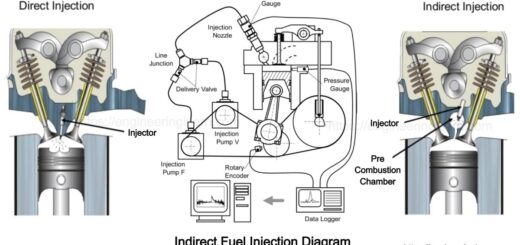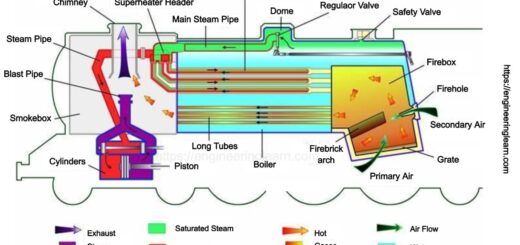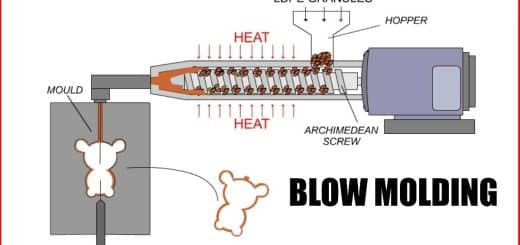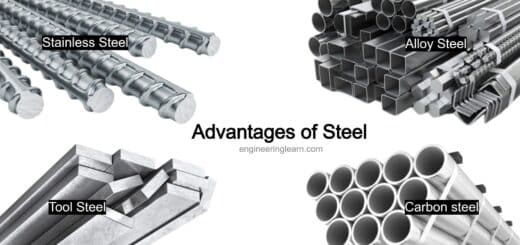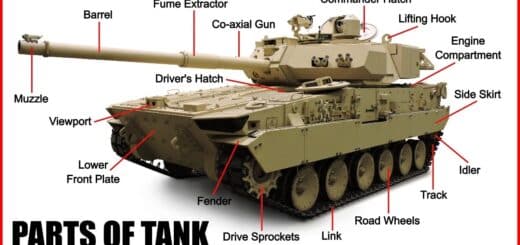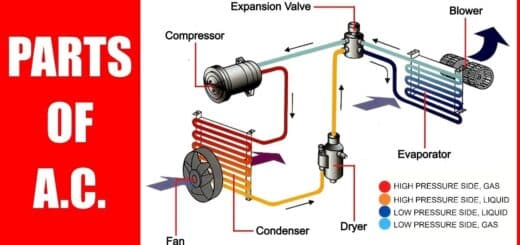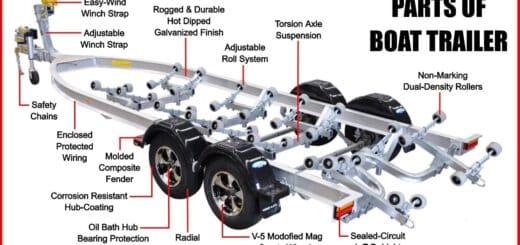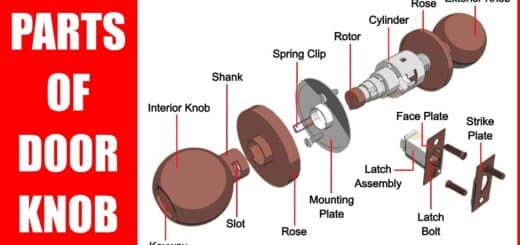Engine Oil: Definition, Types, Uses, Purpose, Work & Benefit [Complete Guide]
![Engine Oil: Definition, Types, Uses, Purpose, Work & Benefit [Complete Guide]](https://engineeringlearn.com/wp-content/uploads/2023/02/Engine-Oil-1024x539.jpg)
Introduction
Engine Oil: Definition, Types, Uses, Purpose, Work & Benefit [Complete Guide]; – Engine oil is one of the most fundamental necessities for the proper working of the vehicle. As per the engine type and conditions, car owners can utilize different car engine oil types. Besides, there are different types of oil grades for your engine to run smoothly. It is such an essential part that you couldn’t turn over an engine without it. Everything sounds significant, yet how and what improves quality helps your engine.
What is Engine Oil?
Engine oils are derived from crude petroleum. Subsequent to being extracted and passed on to a refinery, raw petroleum goes through a few refining cycles to eliminate as many impurities as possible. Mineral oils contain hydrocarbon, oxygenated or non-oxygenated, and may likewise contain sulfur or nitrogen. Added substances are added after the refining processes to further improve execution.
Different Types of Engine Oil
1. Mineral Oil: ( Types of Engine Oil )
Mineral oil is the most simple and crudest type of engine oil. It is likewise a more reasonable and affordable form of engine oil.It is mostly utilized for more simple engines and drivers who don’t have a heavy foot. It has the least lubrication anyway completes the work. The replacement interval is also the shortest.
2. Synthetic Blend Oil: ( Types of Engine Oil )
As the name suggests, this sort of oil is a combination of synthetic base stocks and conventional crude-based oil. Synthetic blends give a portion of the performance benefits of a full synthetic at costs all the more intently equivalent to conventional oils.
Utilizing full synthetic oil costs around 30% more than utilizing a synthetic blend. While conventional oils will just go on around 3,000-5,000 miles between oil changes, a full synthetic can endure up to 15,000 miles. Synthetic blends fall someplace in the center at around 7,500 miles. In this way, utilizing a synthetic blend gives a move forward in security without burning through every last cent.
3. Full Synthetic Engine Oil: ( Types of Engine Oil )
The present conventional engine oils are quality products made using refined crude oil. In correlation, modern full synthetic engine oils are created in various ways ranging from severely hydro-processing select crude stocks to exactly controlling the size and shape of base oil molecules to laboratory-designed complex chemical compounds.
Full synthetic oils are engineered to increase the performance of today’s more accurately constructed and more smoking running motors as well as to fulfill efficiency guidelines and emissions regulations. Full synthetic engine oils are designed to hold consistency, oppose outrageous intensity, and in any case resist extreme heat in winter temperatures, permitting your engines to run as expected all year.
4. High Mileage Engine Oil: ( Types of Engine Oil )
They are designed for vehicles in excess of 75,000 miles on the odometer, high mileage oil has added substances and seal conditioners that can assist with diminishing holes and extend engine life. High mileage oil can likewise protect against store build-up, sludge, and friction. Manufactured in various formulations including conventional, synthetic, and synthetic blends, make certain to read the label to understand what type of high mileage oil you are getting.
5. Conventional Engine Oil: ( Types of Engine Oil )
All conventional engine oils are at first refined from natural petroleum crude. With countless makers switching to synthetic engine oils, you might contemplate whether utilizing conventional oils is at any point fine. Conventional engine oils actually have their place and can give great insurance under the right circumstances at a lower cost.
Conventional engine oils are commonly utilized in more seasoned vehicles and those out of warranty and by and large expense substantially less than synthetic oils. Individuals who are diligent about timely oil changes can utilize conventional oil, assuming the proprietor’s manual indicates it is admissible to do so. Furthermore, more frequent oil changes can make a mechanic aware of a difficult issue developing in an engine.
What is Added to the Engine Oil to Improve Its Performance?
One of the main criteria for engine oil is its viscosity or its flow measure under pressure. Under low temperatures, the oil molecules stay together increasing their viscosity. At higher temperatures, the viscosity diminishes and the oil gradually begins disrupting. So viscosity improvers are added to the base oil so the oil consistency is kept up over an large number of temperatures. Different added substances incorporate cleansers, hostile to wear added substances, grinding modifiers, against erosion inhibitors, dispersants, and considerably more.
What is the Work of Engine Oil?
A) The Engine Oil Acts as a Lubricant
The engine oil forestalls friction because of metal-to-metal contact inside the engine by lubricating the engine parts. The pump forces the engine oil at high pressure to every one of the fundamental directions consequently framing a thin coat over the surfaces and preventing actual contact. The oil’s viscosity decides the way in which readily the oil flow into these tight clearances.
B) It Acts as a Coolant
The additional heat because of steady friction in the engine is absorbed by the engine oil consequently going about as a coolant.
C) It goes About as a Carrier by Removing the Deposits
The minute particles of the engine because of wear and tear get suspended in the engine oil which is transmitted away and deposited in the filter
D) It Protects the Engine from Getting Corroded
The oxidation of the engine surfaces is forestalled by the engine oil as it forms a defensive layer, particularly at elevated temperatures.
What Purpose an Engine Oil used for?
There are endless roles engine oils play to ensure your engine performs well. Below are mentioned some significant ones:-
A) Better Lubrication
Engines are exposed to various temperatures that outcome in gradual wear and tear. The primary role of engine oils is to ensure engines are lubricated or greased properly, so they can run smoothly and have a longer life expectancy.
B) Effective Cooling
With customary utilization of your vehicle, exposure to high temperatures, and the friction of the mechanical parts, your engine will in general heat up. The lubrication provided by engine oils assists with cooling your engine circuit.
C) Cleaner Engine
Cleaning has a significant role that engine oil plays in your engine. It clears the accumulated deposits, sludge, and microscopic debris from the engine and thus unclogs it, so the engine oil can flow well.
D) Act as a Seal
Engine oils give space between the piston and cylinder. These gaps are filled by the engine oils to optimize engine performance and effectiveness.
E) Protects it from Corrosion
Fuel combustion causes metal parts to oxidize and rust with time. The added substances in engine oils help to slow down the process of corrosion, in this manner giving your motor a more extended life expectancy.
What Reason is it Important to Change the Engine Oil Routinely?
The different engine parts during the initial stages wear out because of their little rough texture and these chips are carried away by the engine oil. The accumulated sludge and dirt in the engine oil degrades its quality and subsequently influences the engine’s performance. The aggregated junk in the oil thickens it and debilitates its lube strength. So to ensure that the engine oil is free from carbon, metals, and other junk it is advised that the oil is changed regularly including the filter.
Benefits of Engine Oil
1. Better Lubrication
Engine oil goes through all the fundamental parts of the engine and provides essential lubrication between the mechanical parts. It forms a layer of slick oil molecules within the engine. The engine components are comprised of metal and they need to rub against one another to work. Engine oil sits on the components to lubricate them and make them function proficiently.
The quality and size of engine oils have an important effect. Mineral oils have lopsided and inconsistent molecule sizes which cause more friction than the even-sized molecules of synthetic oils.
2. Increases Engine Life
Engine components are comprised of metal and need to rub and brush against one another to work. This would make a lot of frictional losses and engine wear and tear. Engine oil forms a smooth film on these components and saves them from scratching and scouring against one another. The heat losses generated by friction are limited by better quality (semi-and fully synthetic) engine oil, hence significantly increasing engine life.
Do remember engine oil has its age and does get used up a specific number of kilometers as referenced by the manufacturer. This implies frictional losses are increased and engine components gradually start eating one another.
3. Enhances Fuel Efficiency
The smooth running of the engine oil, with minimal measure of friction, converts into better burning of petroleum in the cylinder. The smoother the running between the parts, the lesser fuel get wasted away producing power to move. In the event that the engine oil is totally spent and is generating more friction, more effort is required by the piston and the crank to generate power. Slicker working of the wrench suggests your vehicle produces power as it is expressed by the maker easily.
Since synthetic and semi-synthetic engine oils keep up with their flow and viscosity, they empower the engine to decrease frictional heat losses and further develop fuel burning in the cylinder. This gives you better fuel efficiency figures even after nonstop use through various environmental conditions.
4. Keeps Engine Clean
Other than reducing friction and keeping the engine parts cool, engine oil constantly catches as many foreign substances as it can during its lifetime. While the engine works, foreign substances and tiny chiseled metal filings are caught by the engine oil and collected in the oil channel. This implies unfamiliar impurities can be segregated from the normal functioning of the engine accordingly saving the motor from costly damage.
Presently on the grounds that synthetic engine oils are smoother, they take the impurities and leave them in the oil channel, rather than mineral oils which might pull them back and spin them again in the engine.
5. Extracts More Performance
This part is vital for all the ‘choke racers’ out there. Make a note, the better the engine oil, the more pleasant the performance. Extremely standard mineral-based engine oils extract the exceptionally standard- rated performance out of your vehicle engine. Be that as it may, you can’t take out additional horses from a standard engine without making drastic changes, however, you can meaningfully impact the manner in which your machine responds. This feat can be accomplished by changing the quality of the engine oil you introduce in the system. Mineral-based engine oils are the least expensive and proceed as standard as possible.
Synthetic engine oils are semi-manufactured engine oil that are a mix of mineral-based parts and synthetic compounds. Then, at that point, are fully synthetic engine oils that are produced by engineered compounds explicitly for performance engines. Better oils decline friction levels consequently empowering the engine parts to run further without a hitch and respond quickly to your inputs.
Would it be Advisable for you to Replace Engine Oil if Driving Vehicle for Less Kms?
Most of the time, many individuals who don’t utilize their vehicle much will generally defer changing the engine oil. They accept that an opportune difference in the oil isn’t required as their vehicles aren’t driven a lot. Like all consumables, even engine oils have an expiry date, particularly whenever they’ve been poured into your vehicle’s oil sump. Engine oil has viscosity molecules. After some time, these molecules will quite often break up, and the oil loses viscosity, regardless of whether the vehicle isn’t utilized frequently. This prompts increased wear and tear under usage and higher maintenance costs.
Conclusion
For a vehicle engine oil is important, like blood is for a person. It won’t be inappropriate to say that any vehicle can’t get by without engine oil. The choice of engine oil relies upon the driving technique of the driver. One may utilize vehicles for inter-city drives just while others might utilize them for long distances. To select the right type of engine oil, you need to pick the oil with a viscosity (thickness of the liquid) that is appropriate for the temperatures your car usually operates in. It is crucial to check your vehicle’s manual for the minimum oil quality requirements and viscosity level. The region’s climatic condition plays a fundamental part in deciding which oil is the best to use. High-quality oil that can sustain extreme conditions or circumstances is needed for those hot and dry regions with heavy traffic to save the engine from any kind of wear and tear.
Content Source: – krishnaautoelectric, kendallmotoroil, shieldoils
Image Source: – cbac

